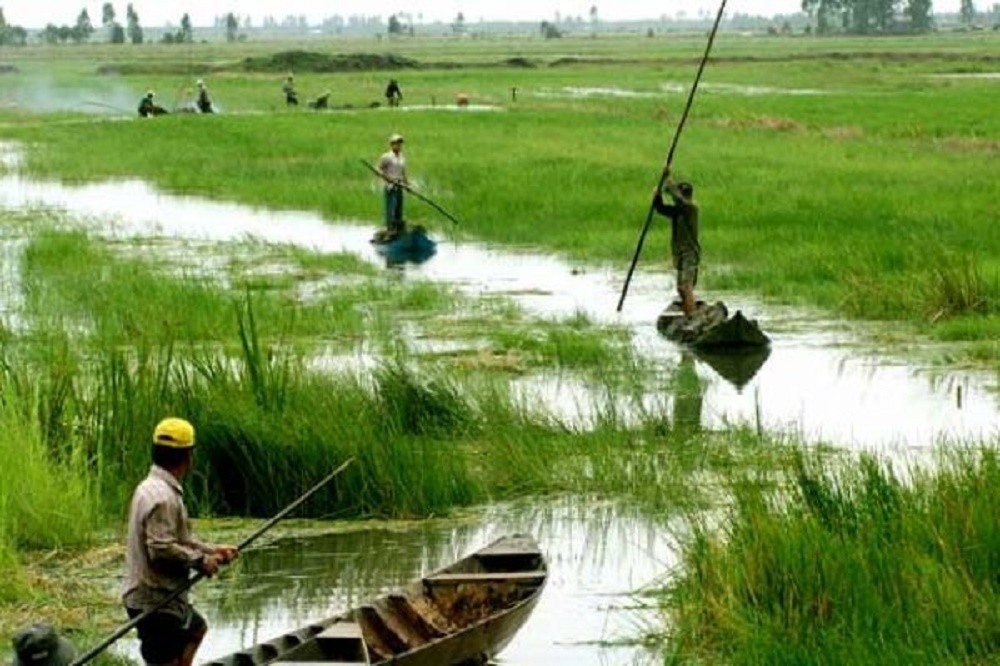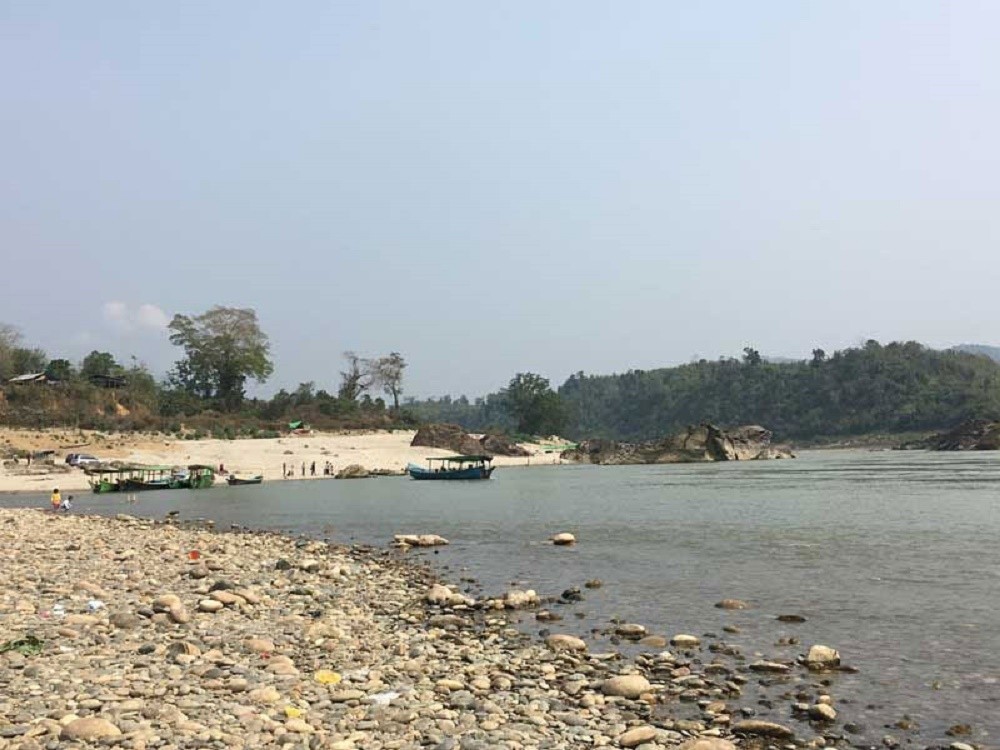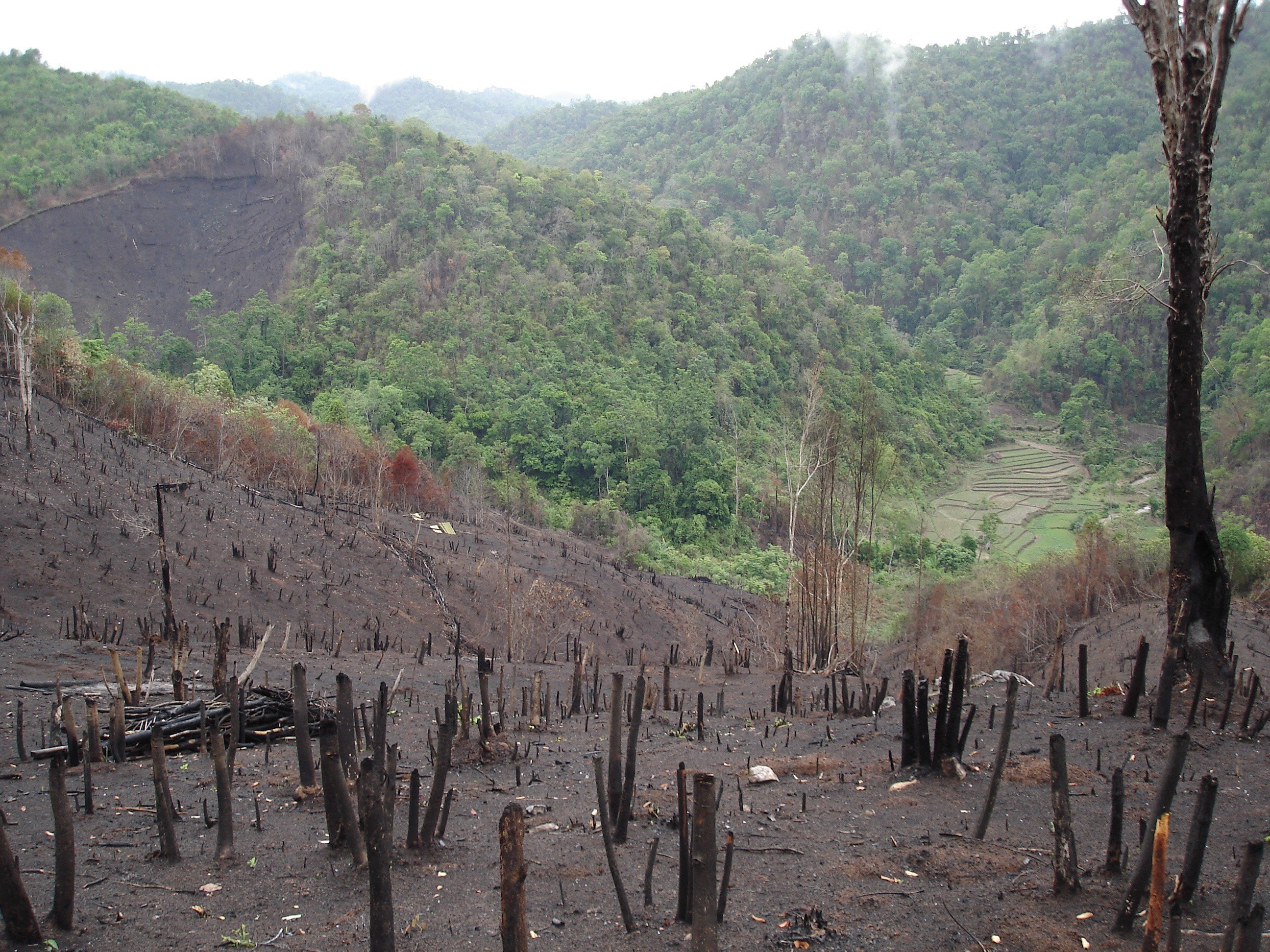Located at the end of the Mekong River, the Mekong Delta of Vietnam was formed about 6,000 years from sediments of the river flowing into the sea plus the process of sea regression.
After the country’s unification in 1975, Vietnam embarked on the planning and exploitation of the delta. The country has successfully solved the alkaline, acidic and salty problems to develop agriculture, particularly rice cultivation in this region. In 1986, the total rice output of the Mekong Delta was around 7 million tones and currently i25 million tonnes, accounting for 90% of Vietnam’s total rice expert turnover.
Professor Nguyen Ngoc Tran, former Deputy Chairman of the National Assembly’s Committee on International Relations, and senior advisor of the National Council of Science and Technology, said the cost paid for the efforts to promote rice production in the Mekong Delta include the rapid disappearance of mangrove forests in Dong Thap Muoi, Long Xuyen quadrangle, U Minh Thuong and U Minh Ha.
Following this trend, since the 1990s many localities in the region like An Giang, Dong Thap … built dikes to prevent flood water from the Mekong River to turn 600,000 hectares of land into the area for three rice crops a year.
“Rice growth is exchanged by the disturbance of hydrological regime outside the dikes while the fertility of the soil inside the dikes declined and the environment degraded,”Prof. Tran said.
At the same time, some coastal provinces have developed shrimp breeding areas. They opened many saltwater sluice gates to take saltwater. The mangrove forest gradually narrowed. People in some areas drilled wells to pump salt water to breed shrimp.
According to Prof. Tran, the Mekong Delta has been facing at least four global, regional and internal challenges.
Specifically, climate change, the sea level rise and economic globalization – international integration are the global challenges. As the earth warms, the faster the ice melts, and the Mekong Delta has to cope with flooding, sinking, coastal erosion and saltwater intrusion.
In the context of such natural challenge, the challenge of international integration and economic globalization forces the Mekong Delta to seek stronger competitiveness in order to have a place in the global value chain.
The regional challenge is the exploitation of water resources in the upstream area, including the transfer of water to another river basin, and especially the exploitation of hydropower on the mainstream Mekong River.
According to the Mekong River Commission, six hydropower dams of China along with 11 dams in the lower basin and 30 dams on tributaries will accumulate up to 65.5 billion cu.m of water of the Mekong River by 20130, while the demand for water in the basin is estimated to rise by 50% compared to that in 2000.
Experts said that the impact of Chinese dams on the Mekong sediments is huge and will last hundreds of years.
The amount of deposits of the Mekong River to the Mekong Delta will be retained by 1/3 or ½ by Chinese dams, causing sediment deficit in the downstream region, making changes of geomorphology of the river bed and estuaries.
Tran said the dams will prevent sediment from flowing into the Mekong Delta and will cause more erosions at estuaries. The serious erosions along Ganh Hao sea dykes and coast protection dykes in Bac Lieu Province as recorded are evident, according to a survey in February.
As for local challenges, Tran said, the loss of mangrove and cajeput forests, and the rampant sand exploitation on the Tien and Hau rivers have threatened the development of the Mekong Delta. In addition, developing the agricultural sector in favor of quantity rather than quality has resulted in a waste of resources, particularly land and water.
Low labor productivity and quality of human resources also challenge the development of the delta.
Nguyen Huu Thien, an expert of Mekong Delta ecology, said the purchase of electricity from the system of hydropower plants in the Mekong River will meet 4.4% of Vietnam’s power demand to 2025. The total economic benefits Vietnam gains from these dams is 5% only.
“The benefits from these dams for Vietnam is limited, while the potential impacton the Mekong Delta is a lot, in the long-term and irreversible, which can threaten the natural survival of this area,” Thien said.
In addition to the loss of mangrove forests, the geographical challenges include the unreasonable exploitation of natural resources. Sand mining in the Tien and Hau rivers (tributaries of the Mekong River in Vietnam) erodes the sediment. Overexploitation of groundwater causes ground subsidence and thus the actual sea level rise is faster. Agricultural development leads to waste of resources, especially land and water.
According to experts, more than ever, in the new context, Vietnam has to review the overall planning of socio-economic development of the Mekong Delta in the direction of saving fresh water and living with drought and salinity. Saltwater should be exploited as a natural resource.
Regarding solutions to the challenges, Vo Tong Xuan, president of Nam Can Tho University, said the Mekong Delta should find ways to save and use fresh water efficiently at a time when hydropower damming in countries in the upper reaches of the Mekong River is showing no signs of abating.
Provinces including An Giang, Dong Thap, Tien Giang and Vinh Long that have fresh water all year round should focus on rice farming. For provinces vulnerable to saltwater intrusion, farmers should grow rice in the rainy season and raise shrimp in the dry season, Xuan said.
Mr. Brian Eyler, Deputy Director of the Southeast Asia Program (Stimson Center, USA), said drought and salinity intrusion in the Mekong Delta is getting worse because of climate change and the operation of hydropower dams in China, Laos, and Cambodia.
“It’s time for the six countries in the Mekong River basin to develop a mechanism for utilization of water resources. In particular, the rights and interests of each country must be coupled with responsibility and obligations for the entire basin, with a cooperative spirit for development,” Prof. Tran said.





